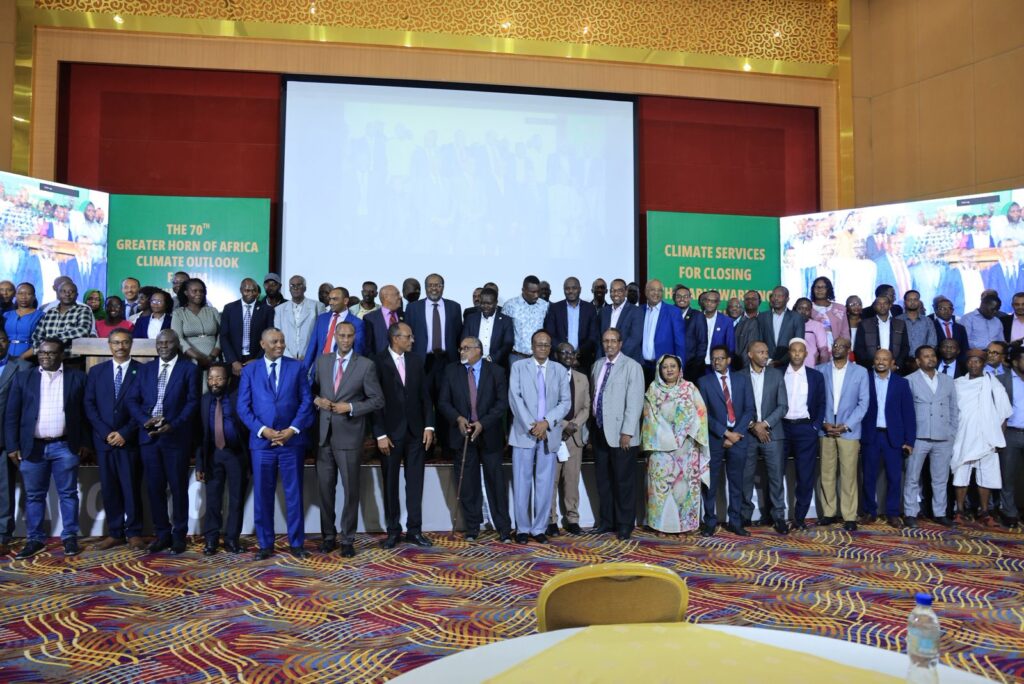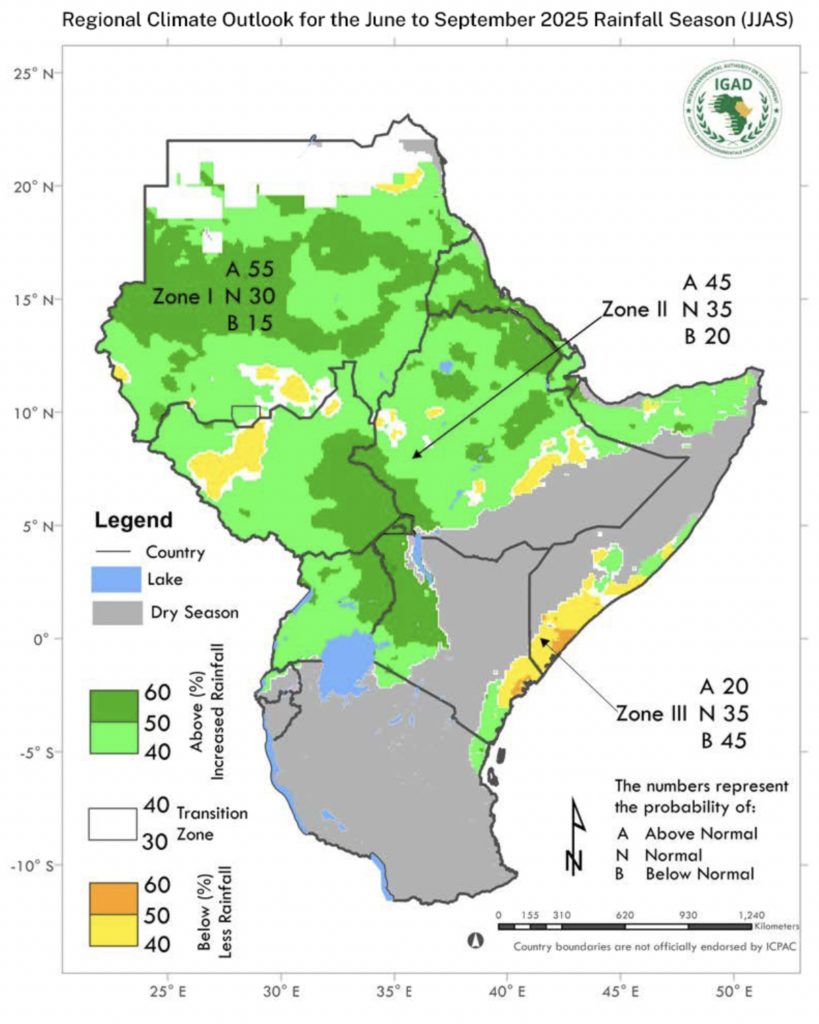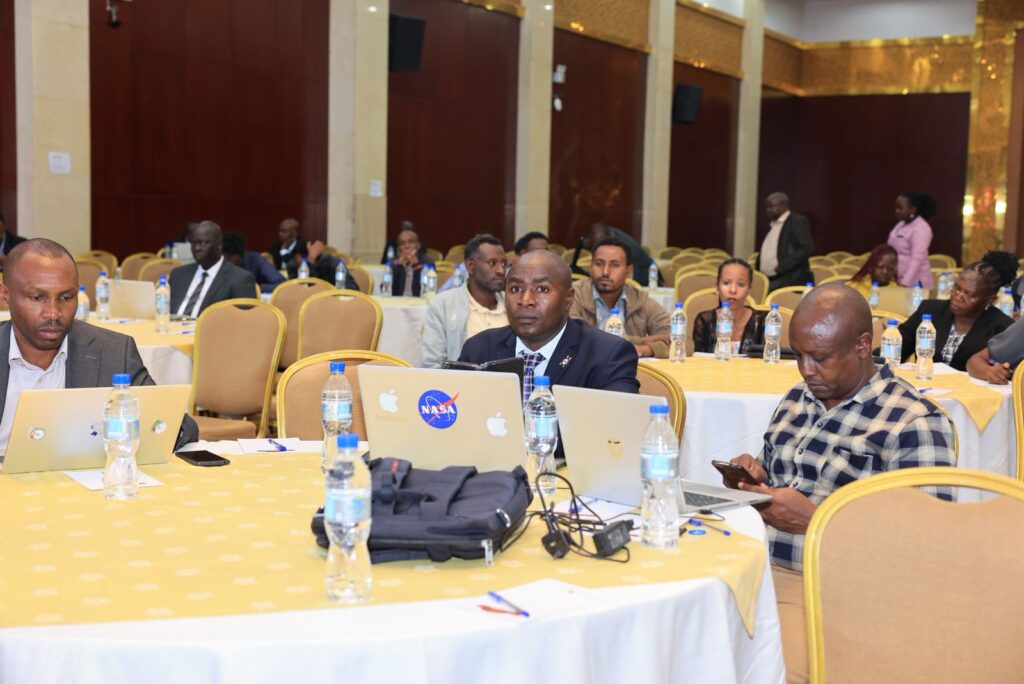The 70th Greater Horn of Africa Climate Outlook Forum (GHACOF) in Addis Ababa was a powerful reminder of the scale and urgency of climate-related risks facing our region. Organized by IGAD, the forum brought together climate scientists, policymakers, humanitarian organizations, and sector experts from across the Greater Horn of Africa to review the June–September (JJAS) 2025 seasonal forecast and its humanitarian implications.

From the International Center for Humanitarian Affairs (ICHA), our key message was clear: climate information must be transformed into immediate, coordinated action to protect lives and livelihoods.
The JJAS 2025 forecast projects above-normal rainfall in western Kenya, raising the risk of flooding, while predicting below-average rainfall along Kenya’s North Coast, potentially worsening drought conditions. Meanwhile, rising temperatures are expected across much of the region.

These contrasting extremes, floods in some areas and droughts in others, underscore the complexity of the humanitarian landscape. As one speaker put it, “Climate change is no longer a distant threat.”
This forecast is a call to action. At ICHA, our mission is to save lives and reduce human suffering. Climate science has become a vital enabler of that mission.
One of the most encouraging aspects of GHACOF 70 was the emphasis on co-producing knowledge, bringing together climate scientists and humanitarian practitioners to generate sector-specific advisories. This dialogue is essential to enabling humanitarian actors to:
- Strengthen early warning systems and ensure alerts reach at-risk communities in clear, actionable ways.
- Pre-position emergency supplies in flood-prone and drought-affected areas.
- Integrate climate risks into contingency planning and social protection frameworks, in collaboration with governments and development partners.
- Support farmers and pastoralists with timely information to inform decisions on planting, grazing, and migration.
Countries across the region face similar threats, erratic rainfall, food insecurity, and disease outbreaks, but they also share solutions. Innovations in climate security, water resource management, and transboundary disaster risk reduction are being exchanged and scaled.

At the Kenya Red Cross Society, through ICHA, we have embedded seasonal forecasts into our Anticipatory Action (AA) frameworks. By acting ahead of hazards, such as distributing cash transfers before floods, we reduce disaster impacts and save more lives.
As humanitarians, we must:
- Forge and leverage partnerships to ensure climate data leads to localized, life-saving interventions.
- Scale up anticipatory approaches that break the cycle of reactive crisis response.
- Center community voices in the design of climate adaptation strategies.
Climate resilience is not an abstract goal; it is a practical necessity. And it begins with listening to science, acting early, and standing together.

